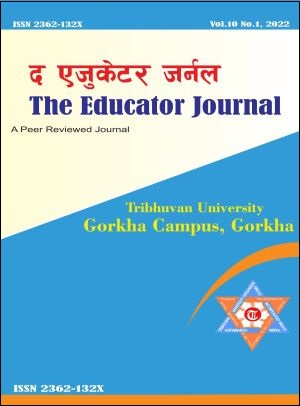Role of Physical Education for the Students with Disabilities in Nepal in the Era of Digitization
DOI:
https://doi.org/10.3126/tej.v10i1.46741Keywords:
Disability, technology, digitization, human abilities, physical activitiesAbstract
This study aims to critically analyze the role of physical education as a natural method of coping with challenges posed by technology for children with disabilities in Nepal in the era of digitization. A qualitative research design was applied to approach the phenomenon. The phenomenon was lokked through a critical paradigm based on the demand of research questions. The primary data were collected from the participants using the in-depth interview guidelines. However, the secondary data were collected through a desk review. This study includes only physically disabled students. Khagendra Nawajeev Special School Jorpati was selected purposively as the research site. Five disabled students (from grade 10) and one Health and Physical Education Teacher were also selected purposively as the respondents for the study.
Moreover, one person involved in policymaking specifically regarding special needs education was interviewed. The obtained data were analyzed and interpreted thematically using multiple facts and critical views. The study found that students with disabilities using information technology are mentally engaged but have stopped physical activities. Techno-addiction has become a big problem. Just as the addiction to marijuana, hashish, and alcohol weakens the level of human consciousness, addiction to technology weakens the essential human potential. Physical activities are the ultimate prescription, as sports and physical education allow students to get active and live healthier lifestyles even in the era of digitization.




